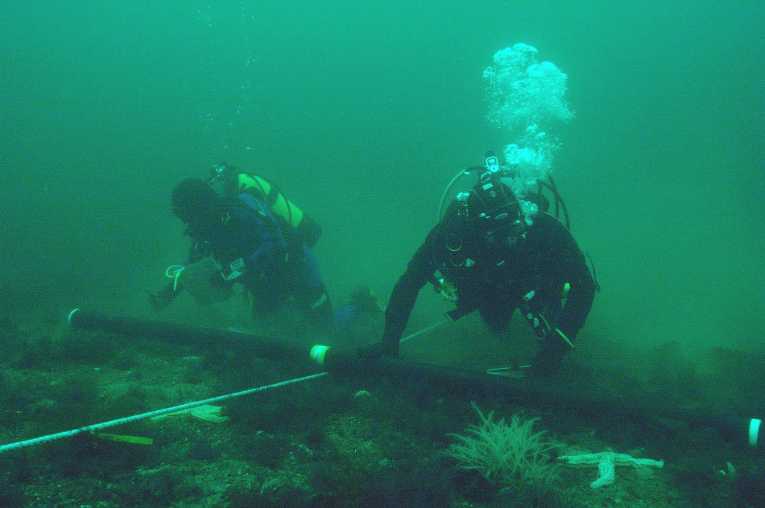Scotland's first marine reserve, established only two years ago in Lamlash Bay in Arran is already showing positive benefits as the seabed recovers from the impact of destructive scallop dredging. More juvenile scallops are thriving in the no fishing zone, and adults are growing bigger and will seed surrounding areas.
In the first scientific study to be published since the establishment of the reserve, the signs of recovery are very encouraging. 'One of the key signs is the return of mixed seaweed beds that are critical for the settlement of baby scallops, this habitat is the first to go when scallop dredgers enter an area,' said marine biologist Bryce Beukers-Stewart of York University who supervised the study. 'There has been an explosion in numbers of juveniles, but adults are also benefitting from protection, growing larger. Without a network of these protected areas the very future of the scallop fishery in the UK may be in doubt.' Though most of the shellfish are exported, the scallop fishery is the third most valuable in the UK, worth £50 million.
The lead author of the study, young scientist and diver, Leigh Howarth said, 'Marine ecosystems can continue to recover for decades when protected inside reserves, the reason this study is so exciting is because this is just the beginning.'

Image Credit: © Howard Wood COAST (Soft coral, dead man's fingers regenerating on the soft seabed.)
But nothing could have been achieved without the relentless efforts of a small group of divers and local residents in Arran, who campaigned for years for the establishment of the reserve after seeing a long term deterioration in their local marine environment. The grassroots campaign from the local Community of Arran Seabed Trust (COAST) was instrumental in turning this small area into a marine reserve in 2008. COAST's chairman Howard Wood was diving in the reserve yesterday and reported, 'Specific areas are regenerating since the scallop dredgers stopped entering the area, delicate species like soft corals are beginning to regrow out of the soft seabed.'
'These set aside no-take zones are critical for future of our fisheries and the biodiversity of our seas. Without a healthy marine environment, none of the industries that depend on it will have a future. I hope that Scotland's politicians will take note and make Lamlash the first of many marine reserves.'
The study will be published in the journal, Marine Biology today.










